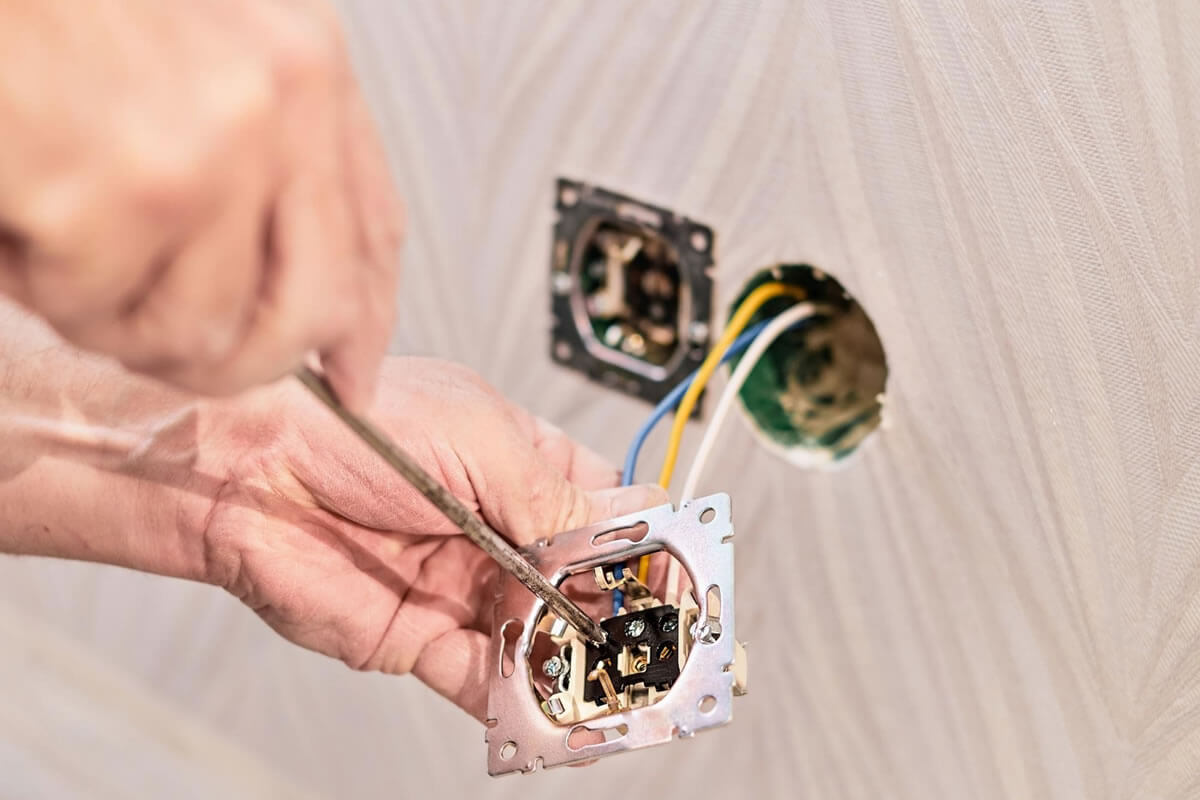Electrical code violations can pose serious risks, including fire hazards, electrical shocks, and system malfunctions. Addressing these violations promptly is essential to ensure safety, compliance with regulations, and the proper functioning of electrical systems. Many property owners, however, find navigating the complexities of electrical codes overwhelming. Electrical contractors are crucial in identifying, resolving, and preventing these violations and providing practical solutions and peace of mind. We will explore how Lititz electrical contractors contribute to addressing code violations, ensuring that electrical systems are safe, efficient, and compliant with legal standards.
Understanding Electrical Code Violations and Their Impact
Electrical code violations occur when an electrical system fails to meet the safety and performance standards outlined by local, national, or international regulations, such as the National Electrical Code (NEC) in the United States. These violations can stem from outdated wiring, improper installations, overloaded circuits, or non-compliant materials. While some violations are minor and easily corrected, others can create significant safety risks or lead to legal penalties for property owners.
One of the most pressing concerns about code violations is the potential danger they pose. Faulty wiring or improperly installed systems can increase the risk of electrical fires, a leading cause of property damage and loss of life. Additionally, code violations may result in electrical shocks, endangering the occupants of a building. In commercial or industrial settings, these risks can escalate, affecting not just individuals but also critical operations and equipment.
Beyond safety concerns, non-compliance with electrical codes can have financial and legal repercussions. Property owners who fail to meet code requirements may face fines, insurance claims denials, or difficulties selling or leasing their properties. Electrical contractors are essential in identifying and addressing these issues, ensuring that systems are safe and compliant, and mitigating the risks associated with violations.
Inspection and Assessment of Electrical Systems
Electrical contractors begin their work by thoroughly inspecting and assessing a property’s electrical systems. This process is critical in identifying code violations, particularly those that may not be immediately visible. Hidden issues such as outdated aluminum wiring, undersized electrical panels, or ungrounded outlets may only come to light during a detailed inspection. Contractors use advanced tools and techniques to evaluate the condition and compliance of every system component.
During an assessment, contractors pay close attention to key areas such as circuit breakers, wiring insulation, and connections. They also evaluate whether the system can handle the property’s electrical load requirements. For example, a home with modern appliances may require upgrades to meet current code standards. Similarly, commercial buildings with high-energy demands often need customized solutions to address violations.
This inspection phase involves identifying problems and educating property owners. Contractors provide detailed reports that outline violations, potential risks, and recommended corrective actions. By taking a systematic inspection approach, contractors lay the groundwork for effective resolution and future compliance.
Repairing and Upgrading Electrical Systems
Once violations are identified, electrical contractors implement solutions to repair and upgrade the systems. Repairs can range from simple fixes, such as replacing outdated outlets, to more extensive work, like rewiring entire building sections. Contractors ensure that every repair aligns with the latest codes and standards, minimizing the likelihood of future violations.
Resolving code violations often involves upgrading electrical systems to meet modern demands. For instance, older buildings may have insufficient electrical panels for today’s technology-driven environments. Contractors can replace these panels with updated versions with greater capacity and enhanced safety features.
Another critical aspect of upgrading systems is ensuring energy efficiency. While addressing code violations, contractors often recommend solutions that improve the overall efficiency of the electrical system. This can include installing energy-efficient lighting, optimizing circuit designs, or integrating renewable energy systems. These upgrades enhance safety and reduce energy costs, offering long-term benefits to property owners.
Preventing Future Code Violations
Electrical contractors address existing violations and play a pivotal role in preventing future issues. Prevention begins with proper installation and code adherence during the initial setup of electrical systems. Contractors ensure that all components, from wiring to outlets, are installed correctly and safely. This proactive approach minimizes the risk of code violations arising later.
Regular maintenance is another key factor in preventing violations. Contractors provide ongoing maintenance services, such as inspecting wiring, testing circuits, and ensuring that electrical systems remain in good condition. These routine checks help detect potential issues before they escalate into violations. For example, identifying a loose connection during a maintenance check can prevent overheating and reduce fire risk.
Education is also a vital aspect of prevention. Contractors often educate property owners about compliance and proper electrical system use. They may advise on safe practices, such as avoiding extension cords for permanent wiring solutions or refraining from overloading circuits. Contractors help maintain long-term compliance and safety by empowering property owners with knowledge.
Electrical code violations are more than technical oversights; they represent significant safety and compliance challenges requiring immediate attention. Electrical contractors are vital in addressing these issues, from identifying inspection violations to implementing repairs and upgrades that meet current standards. Their efforts extend beyond resolution, encompassing prevention through proper installation, maintenance, and education. By helping property owners navigate regulatory requirements and ensuring compliance with the latest codes, contractors contribute to safer, more efficient, and legally sound electrical systems. We have explored how electrical contractors can help, emphasizing their importance in creating secure environments and mitigating risks associated with code violations.
